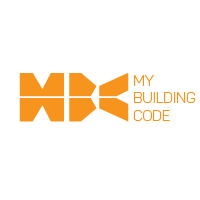The year 2021 will see Kenya’s construction industry adopting the European Code of Standards known as EuroCodes, replacing the British standards (BS) that have been in use since 1969.
According to Kenya Beaureu of Standards (KEBS), come 2021 any product that does not conform to the Eurocodes will not be allowed into the country.
Eurocodes are Europe’s first set of harmonized rules covering all aspects of the structural design of buildings and other civil engineering works. Many practicing structural engineers who grew up with the BS as their defacto guide on matters design will now have to embrace and adopt the Eurocodes.
Eurocodes consist of two parts. The first part is generally the same for all participating countries and is divided into ten segments (EN1990-EN1991). Kenya will begin by implementing only the first four codes: Structural design, action on structures, code on design of concrete structures and code on design of steel structures. The second part consists of the national annex and will adapt the local needs of the country.
Most of the rules in the Eurocodes are based on the same principles used in the British standards. However, they are updated with recent research on aspects dealing with the structure of a building. They are less stringent than the BS because most of the aspects lie with the designer.
The advantage of the new standards is that they promote greater transparency in design methods and will ease communication between designers, authorities and clients.
Eurocodes are expected to open up the country to international markets as construction professionals are enabled to bid and take up contracts beyond Kenyan borders.
Adoption of the standards requires building local capacity, as well as domesticating the Eurocode with local annexes attached to the European template. For example: wind speeds are different in every geological area so adopting the Eurocode without changing to local specifics may mean that the standards become expensive to implement within the local market as engineers will tend to over-design.
They are also expected to be localized to bring on board local building materials and local practices so that they are relevant and easily applied to the Kenyan market.
The Eurocodes once adopted, are set to eliminate disparities that hinder transfer of engineering technology and services within Kenya and the global market. This will allow innovation and use of alternative technology.
The standards are also expected to promote uniformity in levels of safety in the construction sector.







